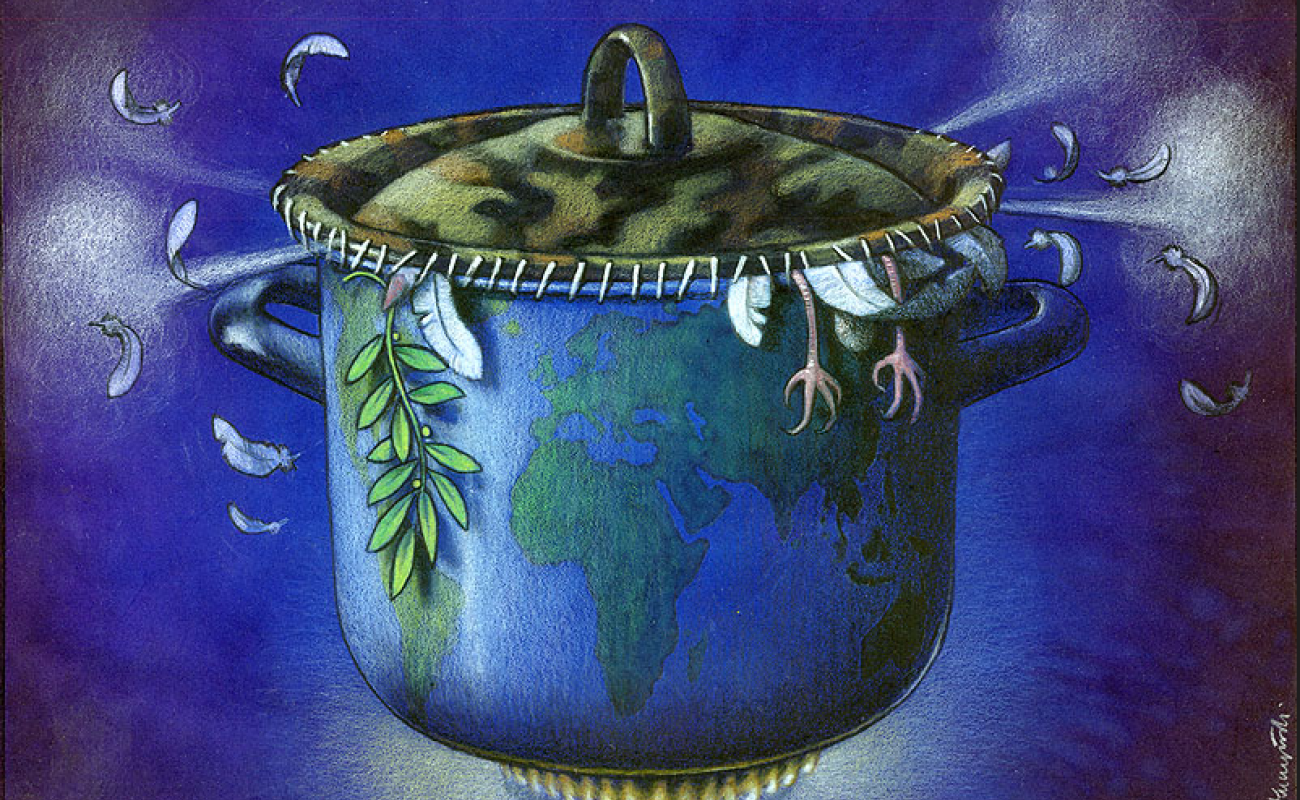The War in Ukraine and the Western Balkans
What has changed in predicting the future of the region?

The more things change the more they remain the same.
The expression above is commonly used in English-speaking countries to show inertia as an often decisive force in political and social developments even when everything seems to be changing shape. This expression came to my mind as I read the scenarios in the Western Balkans Futures report published by Visegrad Insight. (Read the Report)
The above-mentioned report underlines the fact that the war in Ukraine was unimaginable in this form and at the scale we see today. The Russian invasion of Ukraine took all experts by surprise and even more so those who try to make predictions by looking at the various long-term trends as is the case of this report.
Of course, many variables and assumptions are taken for granted and naturally, other trends take on primary importance in this context. And yet after reading the report I had to give the authors an encouraging message that resembles that expression at the beginning. The report sheds light and highlights various developments whose value does not fall even in this new context, on the contrary, some of them take on more importance.
The Scenarios
The report outlines several scenarios regarding the future of the region, from a dark vision where the status quo turns into a conflict to a utopian vision where cooperation between Balkan countries emerges victorious over global challenges. The scenarios are entitled:
- Forced Hand
- Dark future
- Elusive Europeanization
- De-fragmentation of the Western Balkans
- Tied together
In all these scenarios, some more realistic and some more triumphant, there are some very important links that cross the narratives of European integration, regional cooperation, the role of third countries like Russia and China and economic and demographic change.
These topics have been the focus of attention, politics, reforms, protests, public discussions and social media posts. The ensuing war in Ukraine has restored the importance of geopolitics, something that the first scenario carefully treats as a choice and solution that the European Union has the potential to make in the face of systemic rivals.
Stagnation Lead Innovation
The regional cooperation that has gained momentum in recent years also due to the stagnation of the enlargement process is seen as something with tremendous potential but only if it becomes comprehensive and non-destructive.
Pandemics and public health, the environment and climate change are global concerns that continue in parallel with the war and require regional collective action. But also the economy and the need to move closer to average EU standards are an impetus for market expansion and the removal of barriers. Scenarios 4 and 5 provide arguments and details about exactly how this collaboration might affect the future.
Personally, I feel that the scenario that comes closest to the analysis of the research work we have developed at the Institute of International Studies (AIIS) in recent years is scenario 3: Elusive, inaccessible Europeanisation, something that seems to be approaching but we know is still so far away, so much so that it loses meaning.
This scenario starts from the painful premise of a weakening democracy in many countries both in the region and within the EU.
Corruption Erodes Gains
In this pessimistic scenario, the corrupt dynamics between politics, business and the media, a trend that is present and perceptible, becomes such that it completely erodes democratic and economic progress.
On the other hand, low trust and limited interaction between citizens and the active part of civil society do not bring the required result.
As the report quotes, ‘The product of this scenario is that in fact, insecurity will increase, human rights will be violated (and important allies — the EU — will have less incentive to protect and promote them) as well as autocratic and populist regimes will be consolidated.’
This scenario recognizes well and indirectly denounces hypocrisy that is growing and taking shape in the relationship between the Western Balkans region and the European Union. The prospect of membership remains on paper and is recited as a cliché at every visit of senior officials but in reality, both parties are simply buying time up to the next step.
It is this hypocrisy that with the war in Ukraine can and must end. The European Union must think and act strategically for the region, and make room in its own home — for our countries which are part of the European family — and through which the challenges that keep it awake at night pass: refugees, pollution, intimidation of ethnic conflicts.
On the other hand, the countries of the region, especially those accustomed to flirting with third parties, must convincingly anchor themselves in the foreign policy of the organizations they aspire to belong to and complete reforms that guarantee the power and independence of institutions.
If this does not happen scenario 2: the dark future, where a complete disintegration of the integration and development processes that have taken place so far is always a possibility. And for those who shrug their shoulders in disbelief, even war in Ukraine seemed impossible until recently!
—
The original text was published in Albanian in EUROPA.
This article is part of the Western Balkans Futures project supported by the International Visegrad Fund.
